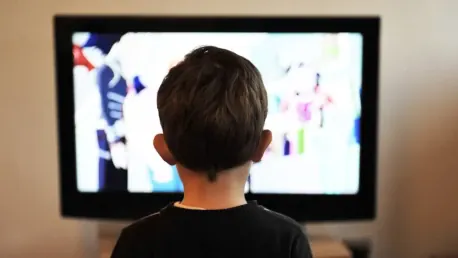The pioneering Bedtime Boost study represents a significant step forward in understanding the effects of screen time on toddler sleep quality, providing valuable insights into pediatric sleep recommendations. Funded by the Nuffield Foundation and conducted by researchers from University of the Arts London, Birkbeck, Queen Mary University of London, University of Bath, and King’s College London, this randomized controlled trial (RCT) recruited 105 families from across London with toddlers aged 16 to 30 months. These families, who were already in the habit of using screens before bedtime, were divided into an intervention group and two control groups to explore how different bedtime routines influenced sleep patterns. This extensive collaboration aims to offer concrete guidance for parents seeking to improve their children’s sleep habits.
The Study’s Methodology
Intervention Group: Screen-Free Bedtime Routine
In the Bedtime Boost study, the intervention group was instructed to completely eliminate screen time in the hour before bed for seven weeks. Parents were provided with a Bedtime Box containing non-screen-based activities such as calming play, reading, or solving puzzles, encouraging a screen-free routine to see if such changes could positively impact toddler sleep quality. The researchers believed that engaging in these activities would reduce the children’s nighttime awakenings and lead to more efficient sleep overall by creating a more restful pre-sleep environment.
The control groups either continued with their usual screen-based bedtime routines or participated in similar activities from the Bedtime Box but without any explicit guidelines on reducing screen time. This division allowed the researchers to compare the effects of different routines involving and excluding screens. Toddler sleep patterns were carefully monitored using wearable motion trackers, which collected data on sleep efficiency, duration, and awakenings both before and after the intervention. It was crucial to observe how a shift towards non-screen activities impacted these significant aspects of sleep quality.
Tracking Sleep Patterns and Data Collection
The wearable motion trackers used in the study played an essential role in objectively measuring the toddlers’ sleep patterns. By recording movements throughout the night, the devices provided the researchers with concrete data on how often the toddlers woke up, how long they slept, and how restful their sleep cycles were. This method ensured a high level of accuracy and eliminated the potential biases that subjective parental reports might introduce. Parents were trained on how to use these trackers effectively, ensuring that the data gathered was both reliable and comprehensive.
Data collection extended beyond just the motion trackers. Parents filled out sleep diaries and questionnaires detailing their child’s bedtime routine, any disturbances during the night, and the overall quality of sleep. This combination of quantitative and qualitative data painted a thorough picture of each child’s sleep environment and contributed to a deeper understanding of the factors affecting sleep quality. The rigorous data collection protocols adhered to in this study underscored the commitment to producing robust, empirical evidence on the impact of screen time.
Findings and Implications
Improved Sleep Quality in the Intervention Group
The results of the Bedtime Boost study were quite revealing. Families in the intervention group successfully removed screen time from their pre-bed routines, and this change correlated with marked improvements in the sleep quality of their toddlers. Specifically, children in this group enjoyed more efficient nighttime sleep and experienced fewer awakenings compared to those in the control groups. These findings suggested that the reduction of screen time before bed could be a simple yet effective tool for parents to enhance their children’s sleep.
Professor Tim Smith, the lead researcher, highlighted that this study is groundbreaking as it provides the first empirical evidence linking reduced screen time with better sleep outcomes in toddlers. While the initial findings are indeed promising, Professor Smith emphasized the need for further research on a larger scale to validate these results. The collaboration with families and early-years practitioners was instrumental in creating an inclusive and low-cost intervention. This aspect of the study ensures that its findings are accessible and practical for a broad audience.
The Need for Further Research
In the Bedtime Boost study, the intervention group was instructed to eliminate screen time entirely for the hour before bed for seven weeks. Parents received a Bedtime Box filled with non-screen-based activities like calming play, reading, or puzzles, supporting a screen-free routine to see if these changes would improve toddler sleep quality. Researchers believed that engaging in these activities could reduce nighttime awakenings and make sleep more efficient by fostering a more restful pre-sleep environment.
Control groups either stuck with their usual screen-based bedtime routines or engaged in similar non-screen activities from the Bedtime Box without specific instructions to cut down screen time. This setup allowed researchers to compare the effects of different bedtime routines involving screens versus those excluding them. Toddler sleep patterns were closely monitored using wearable motion trackers, which recorded data on sleep efficiency, duration, and awakenings before and after the intervention. Observing how a shift toward non-screen activities influenced these key aspects of sleep quality was crucial for the study.









